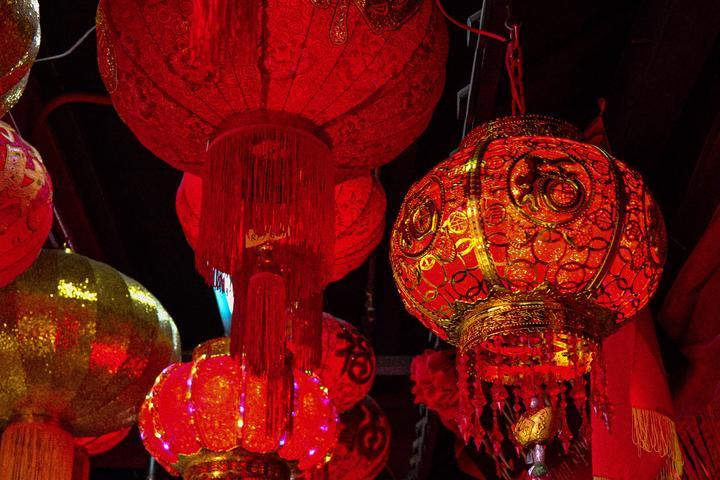Lunar New Year: A time of red lanterns, family and dumplings
Nancy Wang of Santa Rosa knows Lunar New Year is full of aged traditions and beliefs:
Avoid drinking soup on the holiday because if you do, it’ll rain all year.
Eat lots of noodles for several days after the holiday for a longer life.
Clean your house thoroughly before the celebration to clear away “ill fortune” and make room for “good luck.”
But for Wang, the nearly 4,000-year-old holiday, which marks the start of the Chinese Lunar calendar, means more than those beliefs.
It’s about holding her beloved family and friends close and keeping cultural traditions alive with hope they’ll be passed down to future generations.
“I want to keep my culture for my kids and for my grandchildren. I want to share my culture with my community,” Wang, 73, said. “I want to keep these things. That is most important.”
Lunar New Year, also called Spring Festival, is a particularly important celebration in several East Asian countries and calls for a large feast, gathering with family and friends, lighting firecrackers, dragon and lion dances and honoring ancestors.
The holiday begins with the new moon sometime between mid-January and mid-February, depending on the year, and lasts for 15 days. This year, it begins on Tuesday, Feb. 1. It ends with the full moon and a traditional lantern festival.
On Thursday, Wang was in her kitchen preparing dumplings for the upcoming celebration. Her friend of 18 years, Qing Ringstad of Santa Rosa, was helping.
Ringstad recalled her early years in Beijing and wrapping dumplings with her sister and mom as they laughed and chatted about their dreams and what they desired for the new year.
“It’s our culture,” Ringstad said. “We get to spend time together when we prepare food. It’s a thing that reminds you of where you come from.”
Wang was also busy hanging shiny red-and-gold lanterns and pinning up red paper cutouts and couplets with bold black Chinese characters along her doors and windows.
On Lunar New Year’s Eve, she and her family will gather for their annual reunion dinner. There will be a table full of pork-stuffed dumplings, pot stickers, duck, chicken, veggies, fresh oranges and lemons, a whole fish and sticky rice for dessert.
“We need a lot of food on this day. The Chinese believe that if you have a lot of food on Chinese New Year’s Eve and Day, you’ll have food for the rest of the year,” Wang said with a laugh.
Wang’s family will typically set tiny bowls full of cooked rice and chopsticks on the table, along with burning incense, to honor their ancestors.

Elders hand out shiny red envelopes full of cash to their thrilled kids and grandkids. Outside, the Wangs burn fake paper money in a red bucket as an offering to their ancestors.
Then, to top off the celebration, the Wangs play Mahjong, a four-player game with tiles which first emerged in China in the 1800s.
Typically, Lunar New Year’s Eve ends with the crackling of firecrackers in busy streets to ward off bad spirits and lion and dragon dances to bring luck and prosperity to a home, Wang said.
For the remaining 15 days, the celebration is traditionally spent visiting family; praying to deities for abundance, wealth and happiness; and eating various Chinese dishes. And it ends with a lantern festival.
“We don’t always get to do all the traditions, but I try to keep every year as traditional as possible,” Wang said.
In 1970, when Wang was 18, she packed her belongings and family’s recipes and immigrated to the U.S.
Then in 1977, after pit stops in San Jose, Indiana and Japan, she made Santa Rosa her permanent home.
Now her family and community get a glimpse of some of China’s long-standing traditions through her.
Wang picked up her mom’s recipes when she was a girl of 12 in Taiwan. She watched her mom steam and chop vegetables and tagged along with her to the farmer’s market.
Wang doesn’t need a cookbook, nor does she have random recipes chicken-scratched on paper. These recipes are simply a part of her now.
“I watched my mother a lot in the kitchen,” Wang said. “We’d go to the farmer’s market together, pick up fish and cook it. I was the only one out of my siblings that liked cooking.”
Wang’s grandson Derek Baldi, who moved away recently, has never missed a Lunar New Year celebration. This year he traveled from O‘ahu, where he goes to college, to celebrate the holiday with his family.
“It’s our tradition. It’s a time for ceremony and honoring ancestors in heaven, like my great-grandmother,” Baldi, 18, said from San Francisco. “I couldn’t miss it this year.”
The year 2022 is the year of the Water Tiger, one of 12 zodiac animals related to the Lunar calendar, which assigns an animal and various traits to each year in a 12-year cycle.
The Water Tiger denotes strength, bravery and driving out evils, Wang said.
The holiday is also celebrated in other East and Southeast Asian countries. In North and South Korea, the holiday is called Seollal. And in Vietnam, it’s called Tet.
“I’ve never lived in a place as long as I’ve lived here,” Wang said. “This is home, too.”
You can reach Staff Writer Mya Constantino at mya.constantino@pressdemocrat.com. @searchingformya on Twitter.







